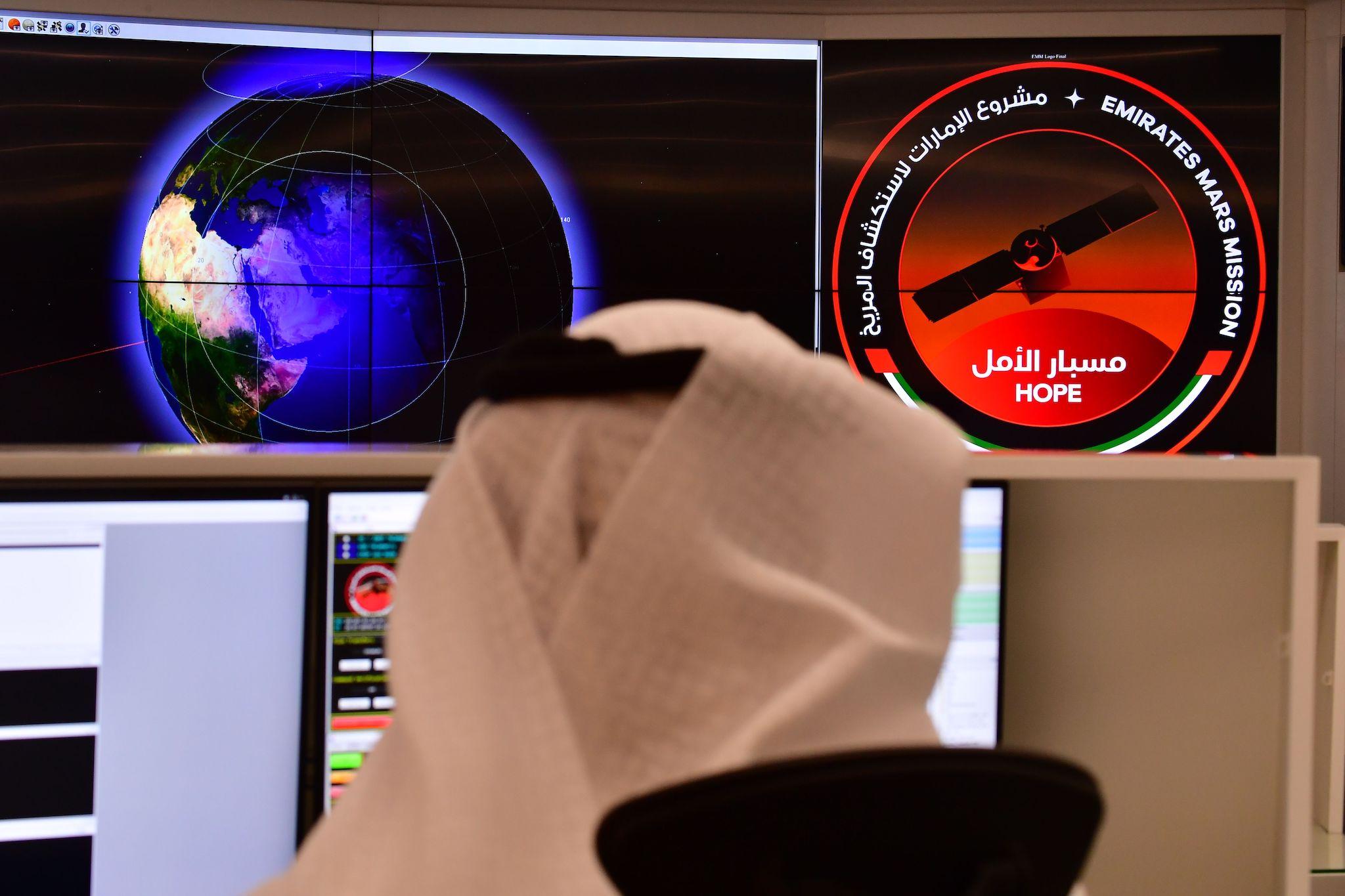Emirates Mars Mission postponed because of bad weather

Your support helps us to tell the story
From reproductive rights to climate change to Big Tech, The Independent is on the ground when the story is developing. Whether it's investigating the financials of Elon Musk's pro-Trump PAC or producing our latest documentary, 'The A Word', which shines a light on the American women fighting for reproductive rights, we know how important it is to parse out the facts from the messaging.
At such a critical moment in US history, we need reporters on the ground. Your donation allows us to keep sending journalists to speak to both sides of the story.
The Independent is trusted by Americans across the entire political spectrum. And unlike many other quality news outlets, we choose not to lock Americans out of our reporting and analysis with paywalls. We believe quality journalism should be available to everyone, paid for by those who can afford it.
Your support makes all the difference.The Emirates Mars Mission has been delayed because of bad weather.
The historic launch was due to happen from Japan on Tuesday, but "weather conditions at the launch site" led the UAE space agency to postpone it.
The Hope Probe, as the Arab world's first interplanetary mission is known, will instead be launched on Friday, 17 July local time, or 8.43pm on Thursday evening in the UK.
It is one of three missions to Mars hoping to launch in quick succession, and will be followed by China and the US's own launches.
The three almost simultaneous launches are a result of the fact that Mars missions must be timed for the period when Mars, the Earth and the Sun align to allow a probe to efficiently sent to the red planet.
That also means that any more significant delay will force the missions to be pushed back by more than two years. The launch window only opens once every 26 months.
The UAE's spacecraft is named Amal, or Hope in Arabic. It was built in partnership with the University of Colorado Boulder, and will arrive in the same year that the UAE marks its 50th anniversary.
"The UAE wanted to send a very strong message to the Arab youth," project manager Omran Sharaf told the Associated Press.
"The message here is that if the UAE can reach Mars in less than 50 years, then you can do much more. ... The nice thing about space, it sets the standards really high."
Unlike the Chinese and US missions, the UAE's spacecraft will not try to land on the surface of Mars, but rather stay in orbit above it. It will stay in an orbit tens of thousands of kilometres above the surface, studying the planet's atmosphere and monitoring climate change.
China's spacecraft is due to take off around 23 July, though it is not clear exactly when. As with other missions, relatively little has been said about the launch.
Nasa's Perseverance rover will not leave until 30 July, after some delays. That has led to fears that it could miss out on the launch window and have to wait until 2022.
Join our commenting forum
Join thought-provoking conversations, follow other Independent readers and see their replies
Comments